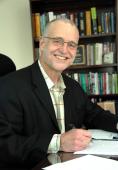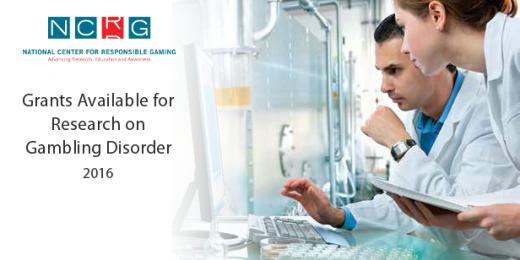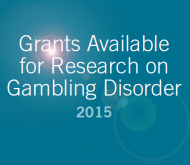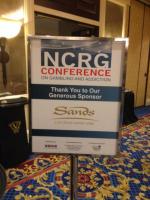
The NCRG recently awarded an NCRG Center of Excellence in Gambling Research and four Seed Grants. The center grant of $355,001 was awarded toDr. Wendy Slutskeat theUniversity of Missouri, Columbia. Dr. Slutske’s project seeks to fill the void of research on community-based studies of gambling disorder. Because so few disordered gamblers seek treatment, treatment populations cannot be considered representative of all disordered gamblers; hence, the need for broad community-based studies to answer questions about the origins and trajectory of gambling disorder.
Focusing on four unique datasets from Sweden, New Zealand, Australia and a US sample of reservation-dwelling Native Americans, Slutske’s team will pursue the following questions: (1) is living in a disadvantaged neighborhood a (potentially malleable) environmental cause of disordered gambling (DG), and if so, why? (2) where among the ~20,000 genes in the human genome are the variants associated with the risk for DG, and do these overlap with the genetic variants associated with the risk for other conditions such as alcohol use disorder?, (3) are there certain environments in which the genetic risk for DG is more likely to be expressed?, (4) when in the life course is DG more or less likely to first emerge?, and (5) are the causes of DG similar across the lifespan?
The NCRG also recently awarded four Seed Grants:
Seed Grant:“Gambling and Traumatic Stress: Analyses in Veteran and Community Samples”
Principal Investigator: Joshua B. Grubbs, PhD, Bowling Green State University
Awarded $34,500
Aim: Deepen the knowledge of the co-occurrence of gambling disorder and post-traumatic stress, by specifically examining the dispositional, motivational, and cognitive aspects of the known relationships between the two domains. Using two samples of veterans in a residential treatment program and an online, community sample of gambling adults, the project seeks to examine how symptoms of post-traumatic stress may be related to a tendency toward negative emotion (i.e., trait neuroticism), gambling-related cognitions (i.e., positive expectancies about gambling), and motivation to use gambling to cope with or escape from negative emotion.
Seed Grant:“The Effectsof Sensory Reward Cues on Decision Making under Risk in Healthy Volunteers and Problem Gamblers”
Principal Investigator: Mariya Cherkasova, PhD, University of British Columbia
Awarded $34,500
Aim: Understand the effects that sensory reward cues have on risky decision making in both healthy volunteers and disordered gamblers through a laboratory tasks; for example, measuring the impact of cues using eye tracking.
Seed Grant:“At‐risk Gambling in Credit Counseling: Prevalence and Feasibility of Brief Intervention
Principal Investigator: Paul Sacco, PhD, University of Maryland, Baltimore
Awarded $34,500
Aims: (1) To pilot screening for problem gambling in a sample of adults who seek services from a national consumer credit counseling organization; (2) To compare prevalence of at-risk gambling in consumer credit counseling users to national estimates; and (3) To evaluate the perceived acceptability and feasibility of gambling screening from the perspective of credit counselors.
Seed Grant:“The Role of Recovery Capital and Gender Differences in Recovery from Gambling Disorder – A Mixed Methods Design”
Principal Investigator: Belle Gavriel-Fried, PhD, Tel Aviv University
Awarded $34,500
Aims: (1) Examine the applicability of the concept of Recovery Capital to recovery from gambling addiction; and (2) probe gender differences in relation to their recovery and recovery capital. One-hundred and forty individuals who terminated treatment of gambling disorders in the previous 1-5 years will be asked to complete questionnaires including the gambling follow-up scale, the DSM-5 GD, the Assessment of Recovery Capital, and 3 open-ended questions.
NCRG staffICRG Newsaddiction research grantsgambling researchgrantsUniversity of Missouri












